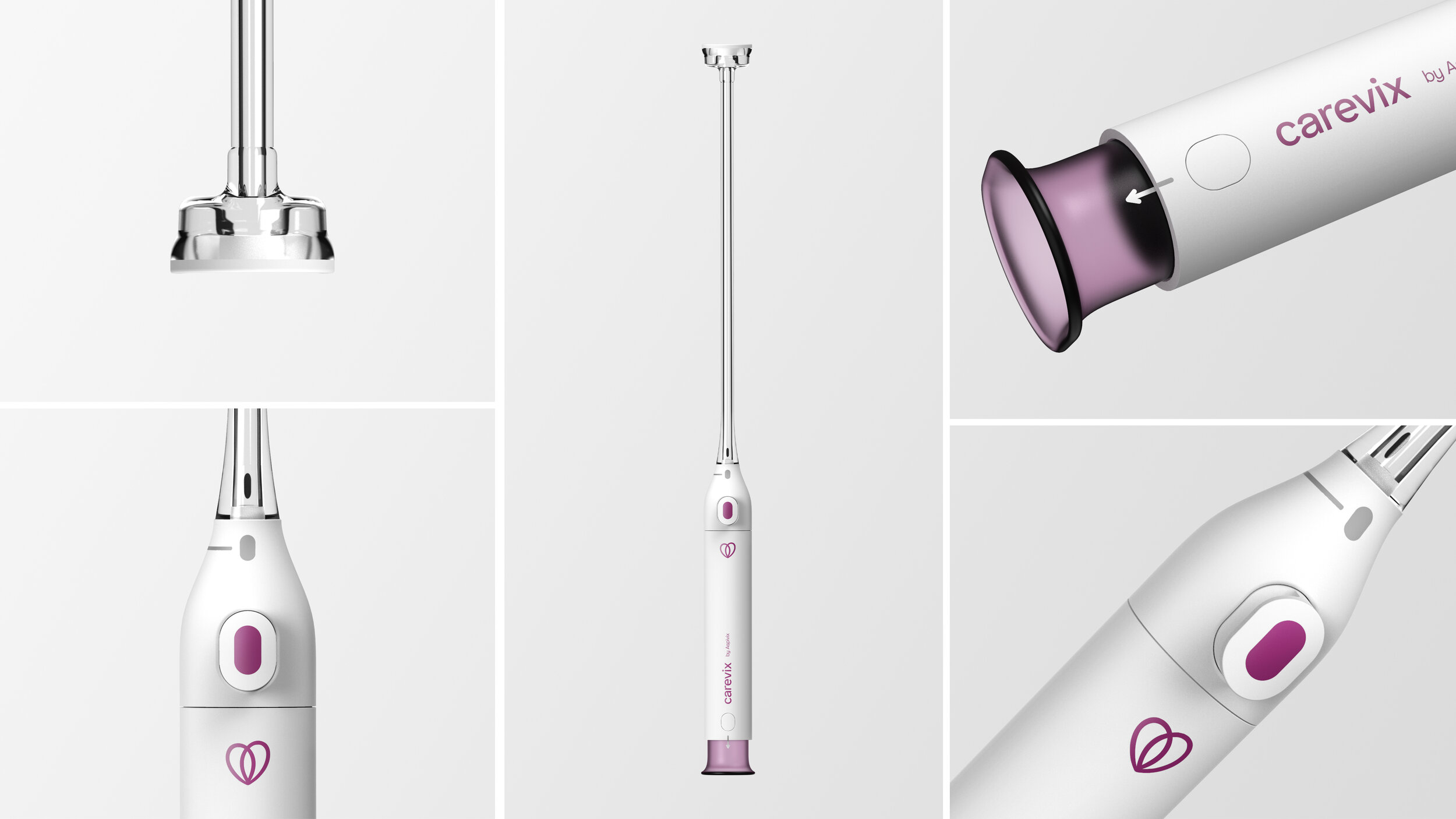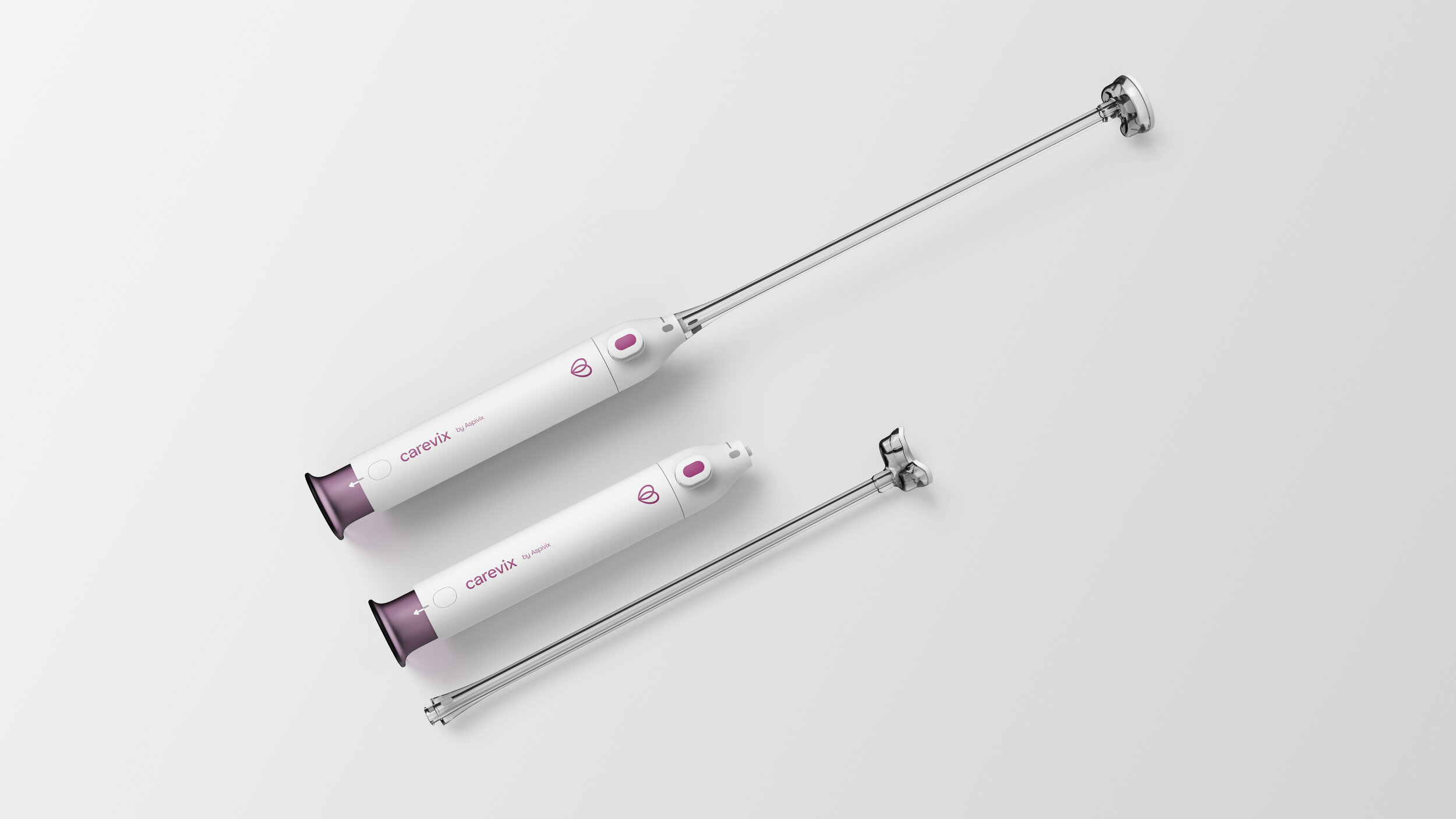WoW Woman in FemTech I Andrea Albornoz, Head of Global Marketing and Sales at ASPIVIX
ASPIVIX is a women's healthcare company developing modern medical devices for gynecology. Their flagship product - an atraumatic suction cervix holder – eliminates pain and bleeding caused by the tenaculum, a device developed a century ago and used in more than 80M common gynecological procedures annually. Moderate to severe trauma caused by the tenaculum is a significant barrier for both clinicians and women adopt the Intrauterine Device, the most cost-effective contraceptive in the market today. Effective contraceptives are key for tackling the unplanned pregnancy epidemic.
Andrea, tell us a bit about your background and your projects so far.
In short, my expertise is in enabling the commercialisation of disruptive medical technologies in cardiovascular, neurology, and most recently in women's health. For the past 20 years, I have worked for Early-Stage ventures - Silicon Valley and Switzerland - as well as Fortune 500 companies across EMEA, USA, LATAM. I am driven by my passion to bring meaningful innovation - that improves healthcare delivery- to individuals like you and me.
I was born in Chile and raised in Brazil where I completed my university degree in Journalism. After 5 years working in both journalism then advertising at McCann Erickson, I moved to San Francisco at the heart of the Silicon Valley to complete an MBA. During my time in the Bay area, which I consider my second home, my horizons expanded exponentially. I saw dot.com expand and implode; I was trained to think, “how to get it done” vs “it can’t be done”; my DNA was “imprinted” with thirst and passion for innovation.
My career in MedTech started by chance when an executive at the MedTech giant – Medtronic - invited me to interview. This was after my dot .com post-MBA job vanished. Moving to Minneapolis in the Midwest in early 2003 was the best learning ground I could have asked for. At that time, innovation was happening within the walls of large corporations. Companies were bringing outside talent with training in business to augment the best-in-class in-house biomedical engineering expertise. Large MedTech was really the place to be.
Since then, I have developed an expertise in bringing to markets globally, disruptive technologies in Cardiology, Neurology, and most recently in Women’s Health working in the US, Latin America, and Europe.
A few unique projects:
At the beginning of my career at Medtronic, I was part of the team that brought to the market Cardiac Resynchronization Therapy, a life-changing device that improves the lives of Heart Failure Patients.
Temporarily I left Medtronic to join a Kleiner Perkins-backed startup in the Silicon Valley and led the launch of the first genomics blood test to diagnose coronary artery disease, considered a breakthrough by Times Magazine.
During my time in Latin America, I worked with Insurances, Regulatory Bodies, Cardiologists to bring the latest Cardiac Implantable Devices to the region
I was transferred to Europe to lead the commercialization of a deep miniaturized cardiac diagnostic – Reveal LINQ - that is revolutionizing the way we think about healthcare not only for cardiology, neurology but also for lifestyle management.
Two years ago in 2019, I joined Aspivix an early-stage MedTech in Women’s Healthcare with the vision to make gynecology modern. We are a team of 6 individuals laser-focused on bringing Carevix™ to the market in mid-2022. This device currently in Clinical Trials was designed for clinicians to deliver superior patient care by reducing pain, bleeding, and trauma in common office base transcervical procedures.
How did you get into this industry? Has it been an easy industry to get into or have you had many challenges?
I got into MedTech by chance. An executive at Medtronic invited me to interview after my dot.com post-MBA job in Silicon Valley vanished.
I have been fortunate enough to have had champions throughout my career. Some that I actively pursued, some that showed up when I needed to. So, my trajectory has been a mix of serendipity, focus & intention, and a great deal of hard work.
Healthcare is an industry filled with opportunities. Challenges are another day at work. They exist across industries for us to find solutions. And we problem-solve by working within our teams, by engaging the right stakeholders, by actively listening and communicating. But for such a process to work we need to understand our business, the market inside and out and as importantly have a goal, a good enough plan to get there and be focused. It is easy to get defocused. Often new ideas will come, as they should. It is important to recognize it as part of the journey and have a vetting process to evaluate, decide go/no-go, and move on.
How long did it take you to be where you are now? What was the biggest obstacle? What are the challenges of being in the industry you are in?
I attended the Women’s Health Innovation Summit in Boston in September. Among the many relevant, timely conversations one stood out for me from Primavera Alessandra Spagnolo - Scientific Director at Brigham & Women’s Hospital – boldly stated during her panel that both she and the scientific community have failed women all these years. By conducting clinical trials and publishing papers where women are underrepresented to fulfill the requirements of the system to publish quickly and a lot largely disregarding its impact. The result is that today we do not have the same understanding as we do for men of how women manifest certain diseases, respond to certain treatments and the list goes on.
Dr. Spagnolo is optimistic, however. The alarm has been sounded and she believes will be able to make the system work for us - tailoring it to our needs. I am as well very optimistic. We reached the bottom and the status quo is simply not acceptable. Digital technologies, machine learning, Ai will allow for faster, more personalized clinical trials that will accelerate learnings and shortened the gaps in women’s healthcare. In addition, it will open new horizons in areas uncharted territories such as menopause, mental health, hormonal management, etc.
What are the projects you are currently working on?
I am currently working on all aspects of marketing and sales including establishing distribution agreements with key partners in the EU and USA that have access and distribution channels to the clinicians who will benefit the most from its device. Selecting & implementing “Centers of Excellence” in both regions (US & Europe) to support training and education of clinicians. Additionally, I am supporting my CEO on Series A fundraising of $5M.
Is the #WomenInTech movement important to you and if yes, why?
During my entire career in cardiology, I worked with organizations such as womensheart.org, goredforwomen.org to help educate cardiologists and women to identify heart disease symptoms. It is well documented that male and female cardiologists still misunderstand heart disease in women because they are not typical.
Since I joined the women’s healthcare space, I realized that such misunderstanding is not only in cardiology but in every single condition. Which is already a daunting task. Then we add on top the fact that are many conditions specific to women (in the broader sense of gender, self-identification) that we do not enough about it.
I am fully committed to using my knowledge to help advance this area so in 10 years we will be able to collectively say, we were able to move the needle.
What will be the key trends in your industry in the next five years and where do you see them heading?
In gynecology and contraception, I envision that companies will be leveraging digital technologies, sensors, AI, Machine learning to bring a variety of effective contraception options that are personalized
That long-acting contraceptive will carry sensors for early diagnosis or monitoring of conditions as well as deliver medication.
The quest for male contraception will be achieved.
What is the most important piece of advice you could give to anyone who wants to start a career in this industry?
If you want to make an impact this is your industry. We need you. Bring your ideas, your personal experience, and let’s reimagine women’s healthcare together.
But before you join, do your research, find people that inspire you. Ask for an intro meeting. Ask questions. Let them tell you, their story.
Whether you join a company or start one, make sure that it is aligned with your values.
Who are three inspirational women in your respective industry you admire?
There are so many because we are amazing but here are three:
Sabrina Johnson - President and CEO, DARÉ Bioscience
Suzanne H Smith – Vice President Mammotome – Brest Cancer
Sharonne Hayes - Cardiologist at Mayo Clinic and Founder of Women’s Heart Clinic
Connect with Andrea via LinkedIn.
This interview was conducted by Marija Butkovic, Digital Marketing and PR strategist, founder, and CEO of Women of Wearables. She regularly writes and speaks on topics of wearable tech, fashion tech, IoT, entrepreneurship, and diversity. Follow Marija on Twitter @MarijaButkovic and read her stories for Forbes here.





